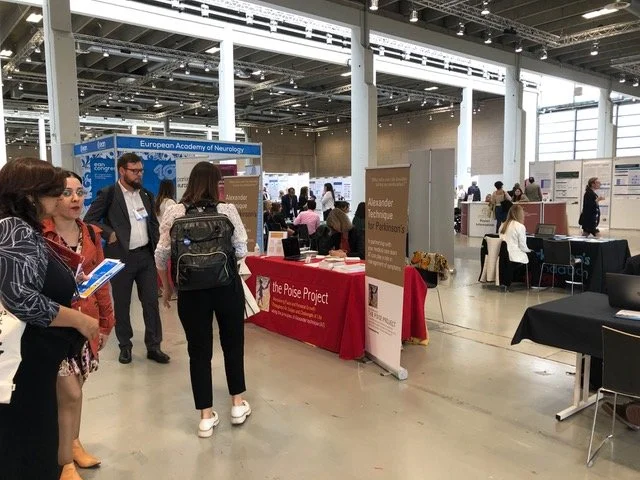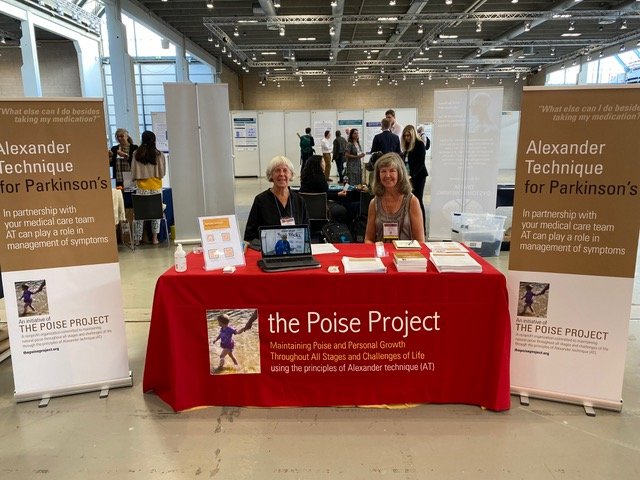Partnering with Poise – Research into how Alexander Technique lessons can help family carers
The ASO Newsletter - 39th Edition
Together we can enable greater understanding of the Alexander Technique
Introduction
This month we discuss how Alexander Technique lessons can help people who are a Care Giver or Care Partner for someone living with Parkinson’s, Dementia or other medical conditions. Erica Donnison interviews Monika Gross from The Poise Project about new research that she and colleagues from the University of Idaho carried out.
The research was designed around in-person and online Alexander Technique courses that The Poise Project (TPP) had received funding for. Questionnaires were administered after the courses and then at 6 months and 12 months post course. In this first of a two part series, Monika explains the background to the research and the main findings and outcomes. Next month, the results and the future plans for this important area of our work will be released.
Part I: Research background, main findings, and key outcomes
Interview Resources and Downloads:
To hear from two participants in one of the courses please click here.
Download a free copy of a Stroop Test
The Stroop test measures executive function by testing inhibitory control. On the third page of the test, the subject is asked to say the color of the ink on the page, NOT the word printed. That is, if the word "Green" is written in red ink, they are supposed to say "Red".Download a free copy of a Digit Span Test
The digit span test measures working memory. That is, the subject is read a series of 3 to 9 numbers and then asked to repeat them out loud in the same order. Then they are read a series of 2 to 8 numbers and asked to repeat them out loud in backwards order.Download The Poise Project "AT for Parkinson's" handouts - in English or Spanish.
Designed to be given primarily to professionals in other fields, these flyers describe how AT can benefit their patients/clients and the family care partners with research references cited. They include contact information to locate AT professionals worldwide and can be given to the general public as well.Download The Poise Project "Partnering with Poise: Caring for the Care Partner" course flyer.
A flyer designed to promote the replicable workshops and courses for care partners created by The Poise Project, based on pilot study research.Download The Poise Project 2023 AT Research Handout.
An up-to-date handout with peer-reviewed research citations.
Additional Links
The Poise Project (TPP) Conference Teams: Descriptions of all the conferences The Poise Project has attended with a team and/or with research to present, since 2016. https://www.thepoiseproject.org/our-advocacy
TPP for Parkinson’s: Background on the “Poised for Parkinson’s” course and other work with people living with PD and their care partners. https://www.thepoiseproject.org/alexander-technique-for-parkinsons
TPP Abstracts & Posters: Link to all TPP’s research presentations, including abstracts, posters, and oral presentations, since 2016. Research on Parkinson’s comes first; research on Care Partners is lower down on the page. https://www.thepoiseproject.org/tpp-research
TPP Donations page: https://www.thepoiseproject.org/donations
About
Monika Gross is an internationally certified Alexander technique specialist with 40 years of experience. She holds a BFA in Drama from UNC School of the Arts, and is a teaching member of the American Society of Teachers of the Alexander Technique, and Alexander Technique International. She is a Master Somatic Movement Educator and Therapist through the International Somatic Movement Education and Therapy Association, and is an active member of the American Congress for Rehabilitation Medicine. She lives in Asheville NC. Since 2016, Monika has served as Executive Director of The Poise Project.
The Poise Project is a US nonprofit with the mission to serve the public in maintaining poise, dignity, and personal growth throughout all stages and challenges of life by using the principles of Alexander technique (AT). We are committed to removing barriers and making AT education available across broad socioeconomic groups, to those with chronic conditions and their family care partners, and to children and youth, so that everyone will have the opportunity to be introduced to the AT principles by the age of 21. We design and deliver AT-based courses for target populations, initiate research projects on the efficacy of AT principle-based approaches, and provide continuing education to industry professionals.
Thank You
Special thanks to Monika Gross and The Poise Project for the generous contribution to this post. To our community members, your engagement and contributions are making a difference. To support ASO you can subscribe here for free, share this post, leave a comment below, or send us an email; your voice matters!



